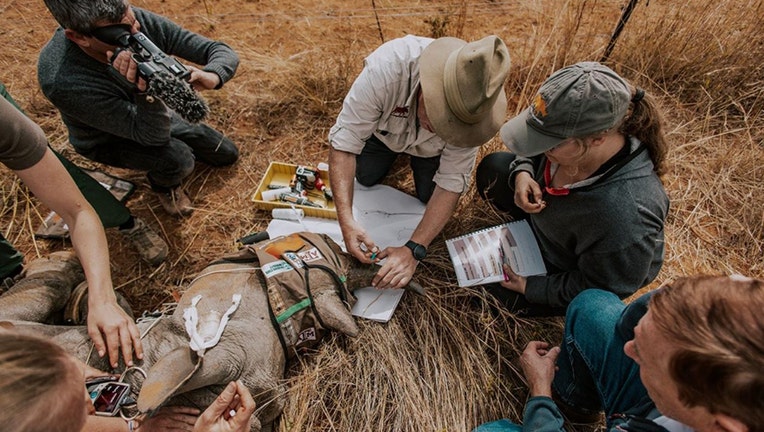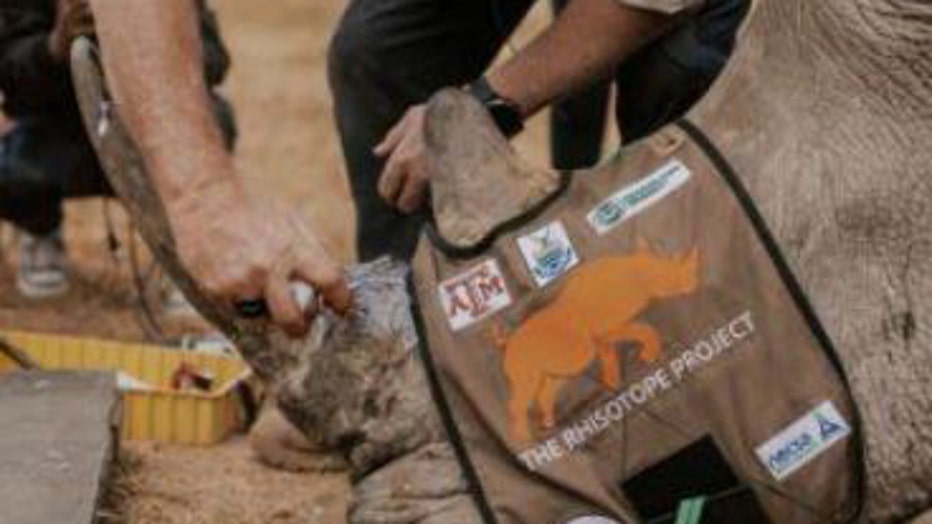Here's how radioactive rhino horns could save animals, deter poaching

Team members from the Rhisotope Project treat a rhino’s horn with radioisotopes. (Photo courtesy of the Rhisotope Project via Texas A&M University)
Researchers are injecting radioactive material into the horns of rhinos as part of a project to discourage poaching.
The team inserted isotopes into 20 rhino horns which would be used to find the horns if they are being traded while helping authorities catch poachers.
These efforts are part of the Rhisotope Project, a South African organization dedicated to rhinoceros protection.
Texas A&M University, Colorado State University, and the University of Witwatersrand in Johannesburg, South Africa are among the groups participating in the project.

Team members from the Rhisotope Project treat a rhino’s horn with radioisotopes. (Photo courtesy of the Rhisotope Project via Texas A&M University)
The research involves a rhino being sedated before a hole is drilled into its horn and the nuclear material is carefully inserted.
Texas A&M nuclear engineering professor Craig Marianno and Texas A&M graduate student Jordan Hillis collaborated to determine the level of radioactive material that would be safe for a rhino and used different methods to test the results.
"Our first priority was to verify that it is safe to put this in the animal. The last thing we want is to harm it in any way or affect the characteristics of the horn and what makes it so unique," Hillis said in a Texas A&M University release.
Marianno explained in the university’s release that finding the type of radiation that could cause radiation sickness or damage horn-producing cells presented a challenge. However, once the team understood the radiation risks they could determine if a safe radiation source could still be detected.
At the start of the 20th century, the global rhino population was around 500,000 but has now dwindled to 27,000 based on demand for rhino horns on the black market, per the International Union for Conservation of Nature, an international conservation organization.
This story was reported from Washington, D.C.

